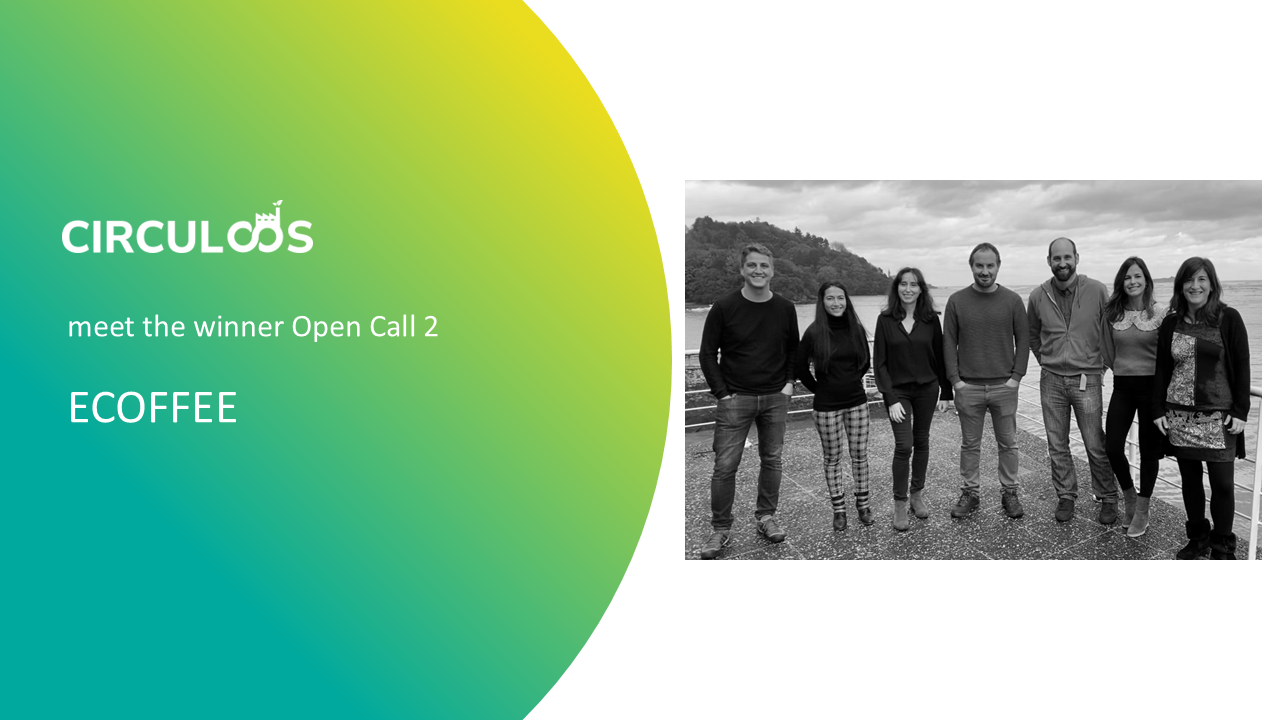Led by AZTI Foundation, the ECOFFEE project brings together innovators from food tech, logistics, biocide development, and EU policy to tackle one of Europe’s most underestimated waste streams—used coffee grounds. Partnering with Euskovazza, Fumihogar, and Finnova, this circular economy pilot aims to transform coffee waste into sustainable, high-value products such as animal feed and natural biocides.
Through tools from the CIRCULOOS project—like RAMP and GRETA—ECOFFEE is not just innovating, but measuring real impact, proving how digital circularity can help reduce emissions, cut costs, and create new value chains. With a strong foundation in past EU-funded successes and a clear vision for scale, ECOFFEE is brewing a new future for circular bioeconomy in Europe.
1. Can you briefly introduce your team? What’s your story and what drives you?
Our team is a multidisciplinary consortium led by AZTI Foundation, a research centre specializing in food and environmental technologies. We are joined by EUSKOVAZZA, a major coffee supplier and logistics expert; FUMIHOGAR, a certified SME developing biocidal products; and FINNOVA, a foundation with strong expertise in EU policy and dissemination. Together, we bring scientific excellence, industrial scalability, and policy impact. Our story is rooted in previous successful collaborations in EU-funded projects like LIFE ECOFFEED and LIFE FUMIGREEN, where we explored bio-waste valorisation and green product development. What drives us is the ambition to transform waste into value, reduce environmental impact, and create scalable circular economy models that benefit both industry and society.2. In simple words, what is your project about and how is it linked with CIRCULOOS?
ECOFFEE is an innovation project that aims to make use of coffee grounds as a high value-added resource, addressing one of the most pressing challenges of the circular bioeconomy in Europe. Through a process of collection, treatment, and life cycle assessment (LCA), the project develops technological solutions to transform coffee waste into sustainable, replicable, and economically viable products. ECOFFEE is aligned with the objectives of the European Green Deal, the EU Circular Economy Action Plan, and the Sustainable Development Goals (SDGs) — particularly SDG 9 (Industry, Innovation and Infrastructure), SDG 12 (Responsible Consumption and Production), and SDG 13 (Climate Action). ECOFFEE is closely integrated with the CIRCULOOS project, supported by a total budget of EUR 256,451.25 and a 12-month implementation period. The project brings together a multidisciplinary consortium of committed partners—AZTI, Euskovazza, Fumihogar, and the Finnova Foundation—merging scientific, industrial, technological, and communication expertise to demonstrate a replicable and scalable model of circular innovation across the European Union. It leverages the following tools developed within the CIRCULOOS framework:- RAMP: We use it to publish and commercialize valorised coffee by-products.
- GRETA: We use it to measure the environmental impact of our circular value chain, including CO₂ savings and resource efficiency.
3. How did you come up with this project idea/concept and what innovative benefits will it bring to the end users?
The idea emerged from our experience in the LIFE ECOFFEED project, where we validated the use of coffee grounds in animal feed. We saw the untapped potential of coffee waste—rich in fibre, antioxidants, and bioactive compounds—and realized it could be transformed into functional, sustainable products. Innovative benefits for end users include:- Animal feed producers gain access to a low-cost, nutrient-rich ingredient.
- Biocide manufacturers can develop natural alternatives to synthetic chemicals.
- Coffee distributors and municipalities can reduce waste management costs.
- Consumers and communities benefit from increased environmental awareness and participation in circular practices.
4. What type of synergies do you want to explore/are already exploring with other circular economy partners?
We are already exploring synergies with:- Coffee distributors for reverse logistics.
- Feed and biocide manufacturers for product development.
- Municipalities and public procurement managers for integrating circular solutions into local strategies.
- Educational institutions and NGOs for awareness and behaviour change.
- In future phases, we aim to collaborate with:
- Biorefineries for further valorisation.
- Packaging recyclers to close the loop on coffee capsules.
- Circular economy hubs to scale and replicate the model across Europe.
5. What are your plans for the future when it comes to the development of your ideas & projects?
Our future plans include:- Scaling up the ECOFFEE model beyond the Basque Country to other Spanish regions and EU countries.
- Expanding the value chain by integrating new actors like large feed producers and recyclers.
- Enhancing digital traceability and data-driven decision-making through the RAMP and GRETA platforms.
- Promoting policy alignment and public engagement to mainstream circular coffee recovery.
- Creating inclusive employment opportunities in logistics, processing, and sustainability education.


